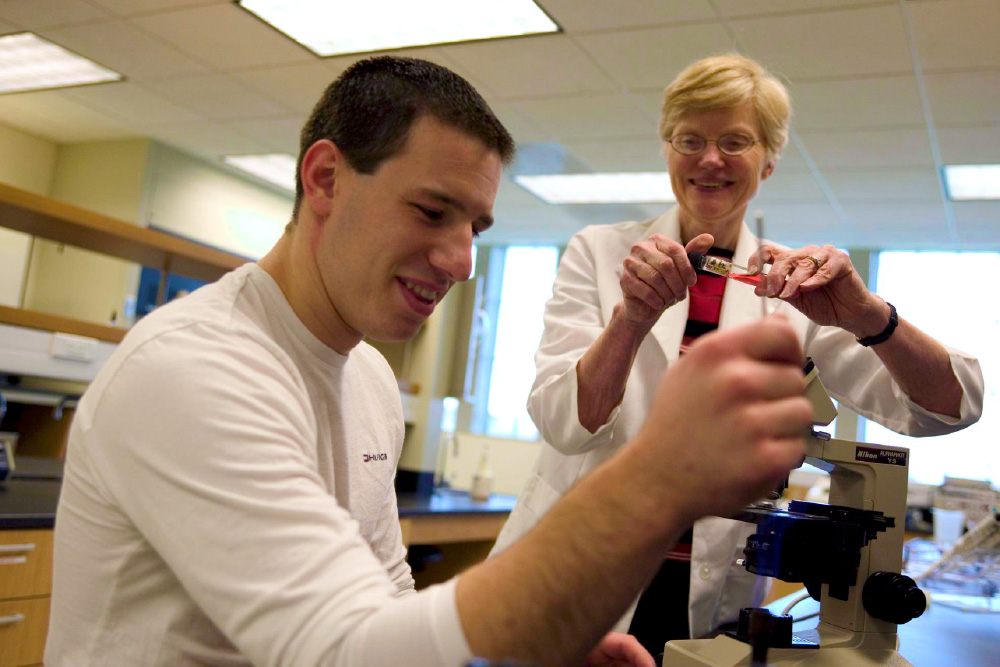
Biology allows you to match your purpose with a world of career possibilities. You might save lives through medicine and research, restore the health of the environment, or advocate for equitable public health. Why pursue a bachelors degree in biology at John Carroll? You will learn in small classroom groups and one-on-one laboratory and research settings. You will have 30-35 students in introductory courses, and 8-12 in your upper-level lab courses.
Research shows that science majors from smaller schools excel — in comparison to those at large public universities learning at factory scale. At John Carroll, you will be seen and heard by the same professors who will one day write critical medical and graduate school recommendations.
Biology at John Carroll University
When you explore biology and its related fields and concentrations at John Carroll, you join a vibrant and welcoming community eager to guide each step of your growth.
You will learn the bedrock skills and habits required for scientific discovery, including:
These good thinking habits will be applied in lab work, field work and through faculty-sponsored research and internships.
BS in BiologyThe undergraduate biology program offers broad study across three core areas: cellular and molecular biology; organismal biology; evolutionary biology, ecology, and diversity. It prepares you for careers that require a strong background in biology and chemistry, including medicine, dentistry, optometry, pharmacy, nursing, physical therapy, occupational therapy, physician’s assistant, public health, and veterinary medicine. The major also prepares you for graduate programs and research positions in biology and related disciplines such as physiology, neuroscience, evolutionary biology.
Cell and Molecular BiologyEmphasizes genetics, biochemistry, cell biology, and mathematics. Additionally, there is a strong focus on helping students develop laboratory skills required for basic and applied research. Prepares you for careers in medicine, biomedical research, biotechnology, pharmacy, healthcare, teaching, and other professions requiring a strong foundation in cellular and molecular processes. The major prepares you for graduate programs in cell biology, molecular biology, genetics, microbiology, pharmacology, and biochemistry.
Environmental Science MajorTeaches the science and theory behind how pressing environmental issues affect natural systems through classes about terrestrial and aquatic ecology, global climate change, and environmental policy. Prepares you as an advocate and for careers in environmental consulting, government, parks and recreation, teaching, research, environmental law, and other areas requiring strength in environmental science. The major also prepares you for graduate programs in ecology and environmental science.
Psychology: Interdisciplinary NeuroscienceOffers biology, chemistry, and psychology majors an interdisciplinary approach to the study and investigation of (nervous system) physiology, biochemistry, and behavior of higher organisms. Prepares you for careers in basic research and clinical studies to new drug development across a wide field of neurological diseases and disorders including Alzheimer’s and Parkinson’s diseases, ALS, ADHD, communication disorders, epilepsy, schizophrenia, and more.
Population and Public Health MinorThe interdisciplinary minor in population and public health offers students from the sciences, humanities and business preparation for solving society's current and future health and health equity challenges. Learn the biological, social and cultural, environmental, ethical, and public policy influences on a population’s health. Prepares you for careers in epidemiology; community health and prevention; environmental and occupational health; and health management and policy, and emerging fields such as health innovation and technology.
Pre-Health Professions ProgramClick here to explore the ways your Biology major can lead you to programs in pre-health professions.
Acceptance rate for John Carroll University students entering dental/medical school or other health related professional school.
Companies comprise Cleveland’s biomedical industry, known around the world for recent breakthroughs in imaging, orthopedics, biomaterials, health IT, biosensors, and regenerative medicine.
Early-stage bioscience and health IT companies across Northeast Ohio have raised over $3.0 billion to advance innovation.

Studies show that private liberal arts schools produce future research scientists at about twice the rate of larger public universities. A big reason is the small class sizes, face-to-face teaching and close faculty attention. You will have 30-35 students in introductory courses, and 8-12 in your upper-level lab courses.
Your relationship with the biology faculty at John Carroll goes beyond classroom lectures and lab lessons. You will be paired with a biology faculty advisor who will help you plan a course of study, a range of research and experiential learning options, and help you think through post-graduate and career options.
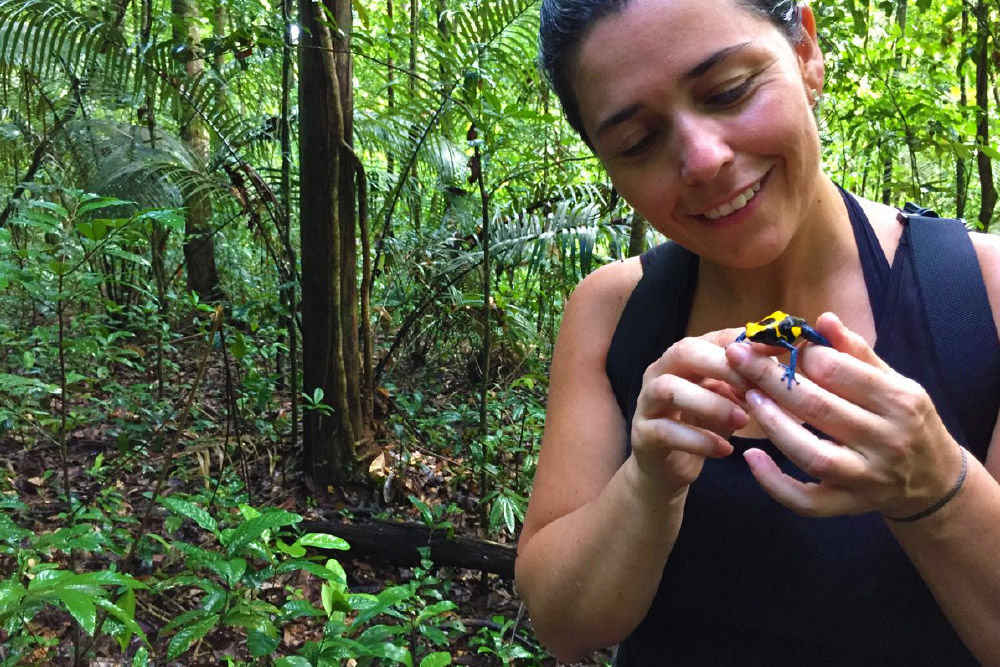
Dr. Ralph Saporito’s Tropic Field Biology class has travelled over Spring Break to Costa Rica to do field-based research on the biological makeup of tropical rainforests, including the behavior of Oophaga pumilio, the strawberry poison dart frog. Field work has also taken students to Mentor Headlands along the Lake Erie shoreline, the Appalachian Mountains, and the Mojave Desert of California where students monitor drought conditions and the impact on large bird populations.

Cleveland is a medical innovation hub - and JCU connects you to three major hospitals and countless health-related firms for internships and research opportunities. Our students have conducted laboratory and clinical research at the Cleveland Clinic, University Hospitals of Cleveland, and The MetroHealth System.
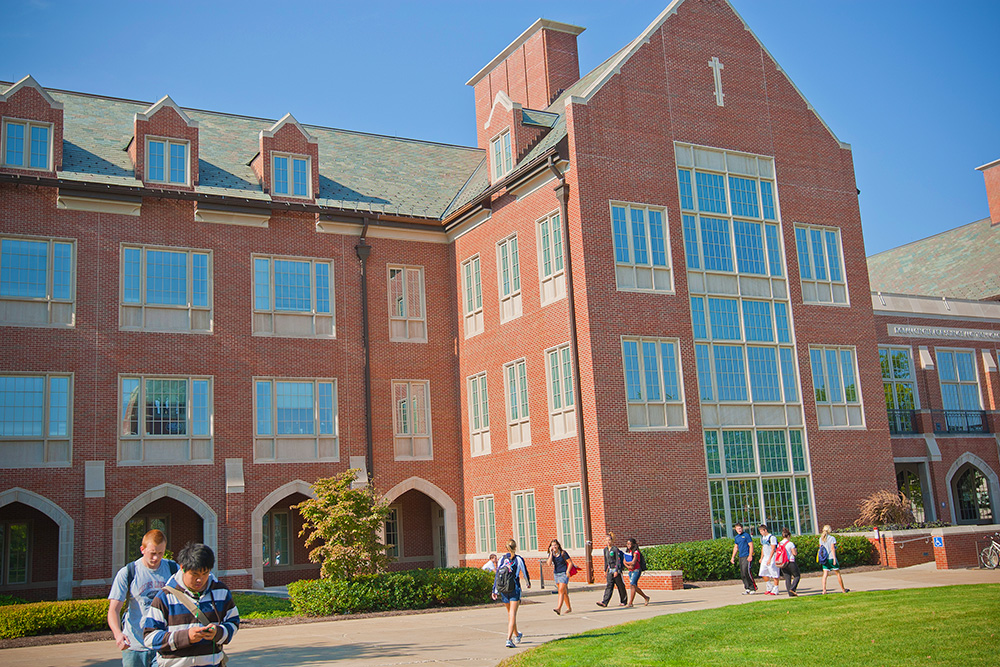
TriBeta - National biology honor society offering professional development and research opportunities for students in any of the three biology majors.
Biology Club: Field trips to local sites, white water rafting, assisting in elementary classrooms, plants sales, and guest speakers.
Pre-Health Society: Honors Society works with the Stork’s Nest at Huron Hospital in a program that trains students to educate new mothers about basic infant care. Joint program with Center for Justice and Community Service, and the John Carroll Student Health Center.
Environmental Issues Group (EIG): Advancing sustainable practices, maintains campus bike fleet, builds gardens and works to create sustainable campus grounds.
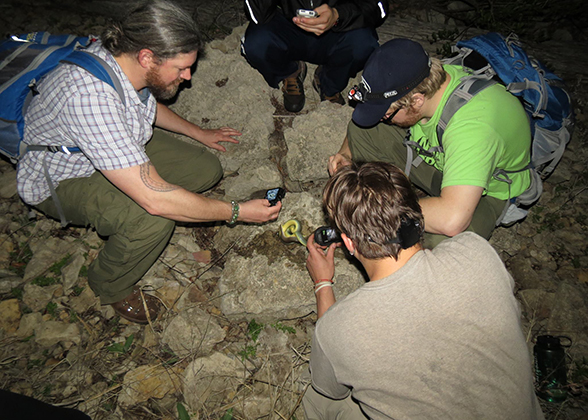
“Our two-semester Anatomy & Physiology course is second-to-none. The small class size makes a big difference. It’s a setting where the professor’s love for the subject matter shines through. We all get to share ‘Ah ha!’ moments — like, ‘why does your heart pump harder when you’re running.’ If you truly have the joy required to thrive in the sciences, it will surface"
— Christopher Sheil, Professor, Department of Biology
Learn to decode the complex nature of the human body: circulation, respiration, excretion, and digestion, the neuronal and hormonal mechanisms regulating these processes, and the underlying dynamic of homeostasis that seeks to maintain the body’s regulation and stability.
The planet’s biodiversity continues an alarming decline, and this course examines the causes and consequences of biodiversity loss at gene, species, ecosystem, and global scales. You will grasp the critical ecological and evolutionary principles underlying conservation strategies and improve your critical analysis of conservation problems and solutions.
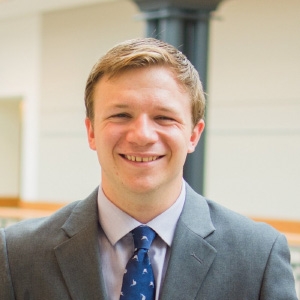
Status: Environmental Sciences (Ph.D.) Graduate Fellow, Ohio State University Focus: Global food security Honors: Fulbright Fellowship Study/Research Award, 2018 JCU Experience: Class trip to study plant adaptation to sustained drought in Mojave Desert. Spain Highlights: Hiking the Pyrenees, playing with a local rugby team.